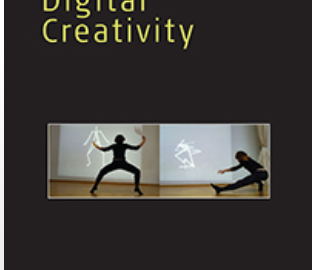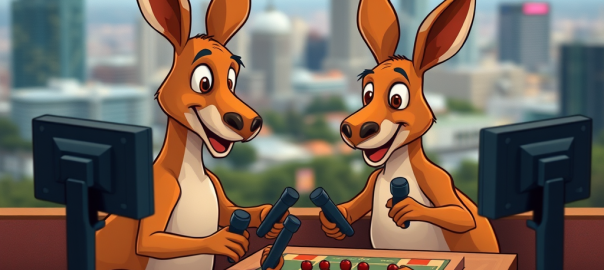Digital Creativity – Special Issue: “Creative Digital Escape Rooms”
UPDATE: THE OFFICIAL CALL IS AT https://think.taylorandfrancis.com/special_issues/creative-digital-escape-rooms/
Special Issue Editors: Erik Champion, University of South Australia, erik.champion@unisa.edu.au and Susannah Emery, University of South Australia susannah.emery@unisa.edu.au
While they are increasingly popular in urban settings, digital escape rooms can be experienced physically, digitally, virtually, or in hybrid form, inside or outside (Lucarelli 2019), or a combination of both. Their potential as learning environments has been well-researched (Makri, Vlachopoulos, and Martina 2021; Charlo 2022), as has their potential for a range of domains: engaging audiences with museum and gallery collections (Smith 2017; Antoniou, Dejonai, and Lepouras 2019; Back et al. 2019; Schaffman 2017), showcasing tourism attractions (Pakhalov and Rozhkova 2020) or even visualising big data (Lior 2020).
They have also been used to test educational techniques (McFadden and Porter 2018; Karageorgiou, Mavrommati, and Fotaris 2019; Pozo-Sánchez, Lampropoulos, and López-Belmonte 2022) and allow the training of unlikely skills and concepts, such as computer programming (Yllana-Prieto, González-Gómez, and Jeong 2023). They can integrate analogue and digital content (Krekhov et al. 2021), exist purely in the virtual realm (Pozo-Sánchez, Lampropoulos, and López-Belmonte 2022), or combine human-driven, mechanical or “smart” interaction and sensory devices (Karageorgiou et al. 2021).
But what makes a creative digital escape room? How can creative experiences be shared? How can creative content be explored and appreciated? How can creative decision-making, insight, and teamwork be fostered and encouraged? Are there digital escape rooms that allow themselves to be creatively reframed, reconfigured, or otherwise modified or extended?
We are equally open to submissions on hybrid (digital and physical) escape rooms, virtual escape rooms, and escape rooms that redefine, provoke or extend stereotypes and conventions of escape room design.
Examples include but are not limited to:
- Creative content, creative design, creative user input, or creative experiences arising from digital escape room design;
- The implications of different genres, platforms, equipment or the mode of delivery on creative engagement;
- Trends, relationships, and influences relating to digital escape room design;
- The dynamic relationships between tools, interaction, surroundings, and environment;
- Design tools and design methods;
- Historical, pedagogical, and/or auto-ethnographic accounts of digital escape rooms;
- Critical reflections and interventions on the relationship of digital escape rooms, changing social phenomena, culture, and creativity;
- Accounts and analyses of engagement and evaluation of digital escape room experiences.
Submission requirements:
Submission to this special issue is a two-stage process. Authors interested in contributing are invited to submit an extended abstract (500 words) for review. The extended abstract should include the following information: (1) Name of author(s) with email addresses and affiliation, if applicable, (2) Title of the paper, (3) Body of the abstract, (4) Preliminary bibliography, (5) Short bio(s). Please email abstracts directly to the editors listed below. Authors whose abstracts are accepted will then be invited to submit a full paper (up to 7000 words). Full papers will then be double blind peer reviewed for acceptance into the special issue. Note that acceptance of an abstract alone does not imply acceptance for publication in the journal. Upon acceptance of the abstract, you will be sent further authors’ guidelines based on the Digital Creativity guidelines (Instructions for Authors) at https://www.tandf.co.uk/journals/NDCR.
Reference
Important Dates
Abstracts due: January 13, 2025;
Full papers due: March 31, 2025 – full essays due via ScholarOne;
Final versions due: June 30, 2025– deadline for final/revised articles;
Expected publication: End of 2025.
Submission method: see https://think.taylorandfrancis.com/special_issues/creative-digital-escape-rooms/
REFERENCES
- Antoniou, Angeliki, Marios Ilias Dejonai, and George Lepouras. 2019. ‘Museum escape’: A game to increase museum visibility. Paper presented at the Games and Learning Alliance: 8th International Conference, GALA 2019, Athens, Greece, November 27–29, 2019, Proceedings 8.
- Back, Jon, Svante Back, Emma Bexell, Stefan Stanisic, and Daniel Rosqvist. 2019. The quest: An escape room inspired interactive museum exhibition. Paper presented at the Extended Abstracts of the Annual Symposium on Computer-Human Interaction in Play Companion Extended Abstracts.
- Charlo, José Carlos Piñero. 2022. “The Rise of Educational Escape Rooms: Designing Games as Formative Tasks.” In Handbook of Research on the Influence and Effectiveness of Gamification in Education, 143-63. IGI Global.
- Karageorgiou, Zoi, Eirini Mavrommati, and Panagiotis Fotaris. 2019. Escape room design as a game-based learning process for STEAM education. Paper presented at the ECGBL 2019 13th European Conference on Game-Based Learning.
- Karageorgiou, Zoi, Konstantinos Michalakis, Markos Konstantakis, Georgios Alexandridis, and George Caridakis. 2021. Smart Escape Rooms for Cultural Heritage: A Systematic Review. Paper presented at the Proceedings of the European Conference on Games-based Learning.
- Krekhov, Andrey, Katharina Emmerich, Ronja Rotthaler, and Jens Krueger. 2021. “Puzzles Unpuzzled: Towards a Unified Taxonomy for Analog and Digital Escape Room Games.” Review of. Proceedings of the ACM on Human-Computer Interaction 5 (CHI PLAY):1-24.
- Lior, Solomovich. 2020. “Studying big data using virtual escape rooms.” Review of. International Journal of Advanced Statistics and IT&C for Economics and Life Sciences 10 (1):23-30.
- Lucarelli, Vissia. 2023. “Creating an Escape Room in a Heritage Site.” Accessed 12 July 2023. https://www.museumnext.com/article/creating-an-escape-room-in-a-heritage-site/.
- Makri, Agoritsa, Dimitrios Vlachopoulos, and Richard A Martina. 2021. “Digital escape rooms as innovative pedagogical tools in education: A systematic literature review.” Review of. Sustainability 13 (8):4587.
- McFadden, Colin, and S Porter. 2018. Augmented reality escape rooms as high-engagement educational resources. Paper presented at the ICERI2018 Proceedings.
- Pakhalov, Alexander, and Natalia Rozhkova. 2020. “Escape rooms as tourist attractions: Enhancing visitors’ experience through new technologies.” Review of. Journal of Tourism, Heritage & Services Marketing (JTHSM) 6 (2):55-60.
- Pozo-Sánchez, Santiago, Georgios Lampropoulos, and Jesús López-Belmonte. 2022. “Comparing Gamification Models in Higher Education Using Face-to-Face and Virtual Escape Rooms.” Review of. Journal of New Approaches in Educational Research 11 (2):307-22.
- Schaffman, A. 2017. “Escaping the Mundane: Using Escape Rooms in a Museum Setting.” In MuseumNext: RISK. Melbourne, Australia: MuseumNext.
- Smith, Amanda. 2023. “How to get millennials into your Museum with escape rooms.” MuseumNext, Accessed 12 July. https://www.museumnext.com/article/get-millennials-museum/.
- Yllana-Prieto, Félix, David González-Gómez, and Jin Su Jeong. 2023. “The escape room and breakout as an aid to learning STEM contents in primary schools: an examination of the development of pre-service teachers in Spain.” Review of. Education 3-13:1-17. doi: 10.1080/03004279.2022.2163183.


